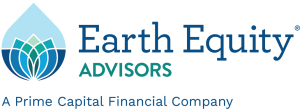How Does Our Spending (and Investing) Reflect Our Values?
How we spend our money tells a lot about a person, to the point where corporations the world over employ fleets of people to study our spending habits. Complicated algorithms exist to predict the direction of the collective social focus through our purchase power, because that’s what it is: power. Consumers have the clout to drive social responsibility through the companies we choose to give our hard earned wages.
What product will become the next fair-trade coffee? The next hybrid or electric vehicle? Which industry is next to get an overhaul thanks to public demand for sustainably farmed, humanely raised, organically grown, responsibly manufactured products?
Is it the US egg industry, facing demand for cage-free eggs because Publix, McDonalds, and Wal-Mart—along with a host of other restaurants and grocers—have all pledged to eliminate battery farmed eggs from their shelves and menus within the next ten years? Maybe, despite what the egg industry lobbyists assert.
Our spending habits matter, driving change in the corporate world when we pledge to put our money where our beliefs are.
This is also true in our investment choices. In Audrey Choi’s Ted talk, she details how a Harvard Business School study showed that businesses focused on environmental and social issues alongside quarterly financial growth had greater returns on investment compared to businesses only focused on quarterly growth. Oxford University conducted their own research and found that the companies that cared about social and environmental responsibility had better operational efficiency, lower cost of capital, and better stock price performance.
“…the future is already here. Sustainable investment today is a $20 Trillion market, and it’s the fastest growing segment of the investment industry… It now represents 1 out of every 6 dollars under professional management in the United States.”
Sustainable business practices are becoming the norm as society demands more social responsibility to go with our consumerism. It’s no longer seen as tree-hugging, hippy, mumbo-jumbo to “vote with our dollars” for the business practices that closely mirror our values. Sure, there’s a premium to be paid if the label on a product contains the word “artisan,” but for a growing number of people, it’s worth it.
Audrey Choi says the financial impact of social responsibility has already made giants out of companies like Burt’s Bees and Ben and Jerry’s. As our conscientiousness grows, triple bottom line companies like these—who consider environmental and social issues alongside the financial impact of their business practices—are taking notice. Technology is not only making sustainable products possible, it’s making them affordable, giving the average person the leverage to spend dollars in line with values. Consumers, thanks to the Internet, are savvier than ever, and they don’t stop at researching products—they’re researching the companies behind the products. What doesn’t measure up gets bypassed.
“So why do we think that our choice of a $4 shade-grown fair trade cup of coffee in a reusable mug matters, but what we do with $4,000 in our investment account for our IRA doesn’t?”
The answer is, it does matter. Our choices have power beyond the supermarket, especially when the difference one person makes inspires others.
PETE KRULL IS A REGISTERED INVESTMENT ADVISER. INFORMATION PRESENTED IS FOR EDUCATIONAL PURPOSES ONLY AND DOES NOT INTEND TO MAKE AN OFFER OR SOLICITATION FOR THE SALE OR PURCHASE OF ANY SPECIFIC SECURITIES, INVESTMENTS, OR INVESTMENT STRATEGIES. INVESTMENTS INVOLVE RISK AND UNLESS OTHERWISE STATED, ARE NOT GUARANTEED. BE SURE TO FIRST CONSULT WITH A QUALIFIED FINANCIAL ADVISER AND/OR TAX PROFESSIONAL BEFORE IMPLEMENTING ANY STRATEGY DISCUSSED HEREIN.



